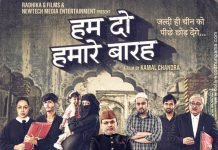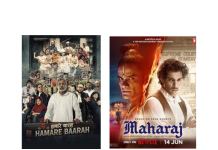I&B minister Prakash Javadekar recently at an event invited suggestions and recommendations from audience and other stakeholders regarding certification of online content. Last year several cases were filed in different courts of the country again seeking regulation of online content. Read the orders here, here and here.
Recently the Karnataka High Court in the matter of Padmanabh Shankar vs Union of India & Ors, vide its judgement dated August 7, 2019 ruled that online content cannot be regulated under the Cinematograph Act. Read judgement here.
The issue before the court was whether the transmission or broadcast of any films, cinemas or serials and other multimedia content through the internet will come within the definition of ‘cinematograph’ under clause (c) of Section 2 of the Cinematograph Act, 1952?
The Petitioner, Mr. Padmanabh Shankar, a public spirited person concerned with the unrestricted broadcasting of films, cinema, serials and other multimedia content via Internet, made the major online video streaming platforms such as Netflix, Alt Balaji and Youtube amongst others as Respondents to the Public Interest Litigation (PIL).
The Petitioner’s main grievance was as under:
- The CBFC was constituted to regulate the content broadcasted through cinemas and the theatres, however the regulation on broadcast and transmission of content via internet has not been deliberated by the Government resulting in multimedia content broadcasted by intermediaries like Netflix, Hotstar, Amazon, Alt, etc often exhibiting vulgar content.
- The petitioner further contended that online streaming platforms cannot seek protection granted to intermediaries under Section 79 of the Information Technology Act, 2000 as Section 79 lays down a condition that the intermediaries will not be liable in case the intermediary has no power to select or modify the content so transmitted by them. However, the Petitioner highlighted that the Respondents in the said PIL have the power to select and modify the content that would be transmitted by them as they have an agreement with the content generators and they have the power as to what would be broadcasted through their online video streaming platform and thus these Respondents cannot seek protection under Section 79 of Information Technology Act, 2000.
- The Petitioner referred to the judgement of the Delhi High Court in Super Cassette Ltd. vs. Board of Film Certificate and Ors. wherein the Court has brought in DVD’s and VCR’s under the ambit of Cinematograph Act. The petitioner accordingly contended that content streaming on platforms amounts to public exhibition and hence should be brought under the ambit of Cinematograph Act, 1952.
- The Petitioner further laid emphasis on the success of Central Board of Film Certification (CBFC) in regulating the public exhibition of films and restraining from showing excess vulgarity, obscenity and scenes that degrade women, thereby showcasing the need for regulatory authority for the online content being streamed on Respondent platforms.
The Petitioner sought from the Court to bring online content under the ambit of Cinematograph Act, 1952 and also to set up an authority to sanction the content so broadcasted through the Respondent platforms. The Petitioner also sought a relief that till an authority is constituted, the CBFC should be certifying authority for all online content to be broadcasted on internet and a direction to the video streaming platforms for obtaining a certificate from the CBFC before broadcasting/transmitting content.
The Counsel for Respondents while opposing the said Petition informed the Court that some of the Respondents have their own corrective mechanism in the form of Code for Self-Regulation of Online-curated Content Providers. The counsel further submitted that the objections and concerns of the Petitioner have been covered by the provisions of Information Technology Act, 2000 and the provisions of Information Technology Act override the provisions of Indian Penal Code.
The Court, after considering the submissions made by the parties and on perusal of the relevant provisions observed as under:
- The Cinematograph Act, 1952 applies to films within the meaning of cause 2(dd) of the Act. The Cinematograph is an equipment which includes a camera which creates a film and the machine which exhibits or display a film. A video is recording of moving images and their recording is made digitally or in the form of digital files. Therefore, a video film or a video compact disc is included in Section 2 (c) of the Act.
- the present petition deals with films and serials available on internet and that internet is an interconnected network of all web-servers worldwide and webservers are a program that uses Hyper Text Transfer of Protocol (http) to serve the files that form web pages to the users which are provided in response to their requests which are forwarded by http client on their computers. The Court stated that the internet contemplates transfer of files in response to the requests made by the users.
The Court thus held that transmission or broadcasting of films serials, etc. through internet will not come under the purview of Cinematograph Act, 1952 and declined the prayer sought by the Petitioner. However, the Court mentioned that it is open for the Petitioner to make representation to the appropriate legislative authorities for the same.
The Court further observed “As far as the guidelines placed on the Code for Self- Regulation of Online Curated Content Providers are concerned, we must note that the same do not create any enforceable right in favour of citizens and therefore, the same do not prevent the State from considering what safeguards and what regulations within the four corners of law can be provided as regards the grievance made by the petitioner”.
Interestingly, despite the judgement passed by the Karnataka High Court, the I&B Ministry has again invited suggestions on whether online content should fall within the purview of the Cinematograph Act.
Firstly, the I&B Ministry does not have any jurisdiction to call for such suggestions. As reported by Medianama here, in response to a RTI application, the I&B Ministry categorically said that they do not have the power to censor any content online, and that they are “not pursuing the creation of a regulatory framework” that would allow them to have any online censorship powers. I had covered a post here on content regulation on OTT Platforms.
Secondly, Ministry is struggling with even getting an amendment done to the Cinematograph Act for films. Despite the Justice Mudgal Committee report followed by Shyam Benegal report, no amendments have seen the light of the day. The inconsistent manner of functioning of CBFC (being sanskari on and off as per its whims and fancies) is also not unknown. Getting a body like CBFC to regulate online content which is non-linear (viewer has control !) would be taking 10 steps backwards. And let’s not forget, India is the fastest growing entertainment and media market globally (this is not me saying, PWC report says it). Remove the freedom of showing the content the platforms show globally and you would be left with the same old television content (Not sure if the global platforms would then be interested investing the way they are). That does not mean that platforms should abuse the freedom they have enjoyed so far. They need to show content with some responsibility and need to take self-regulation a bit more seriously if they wish to avoid another sanskari board watching over them.
Image source: here













Comments are closed.